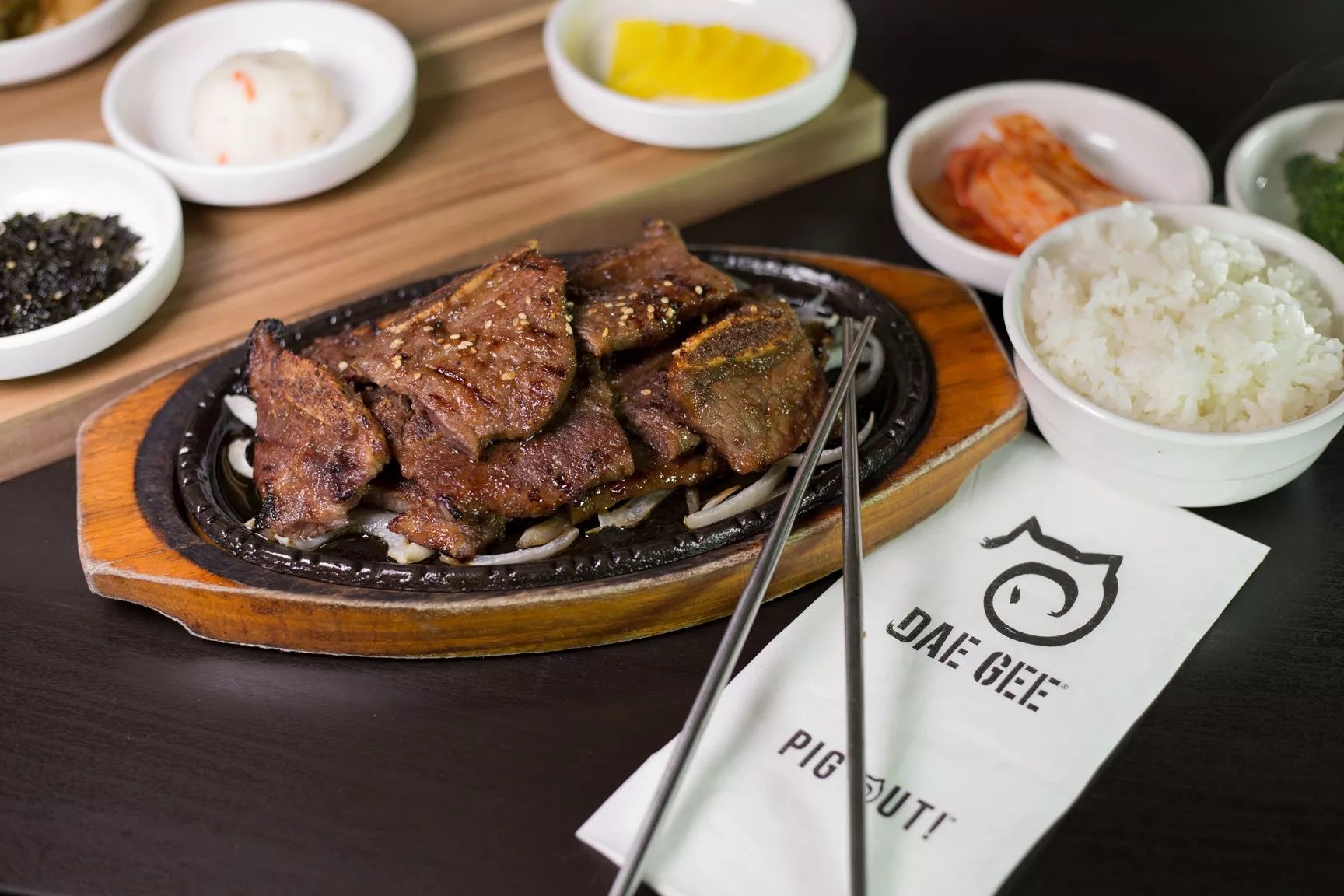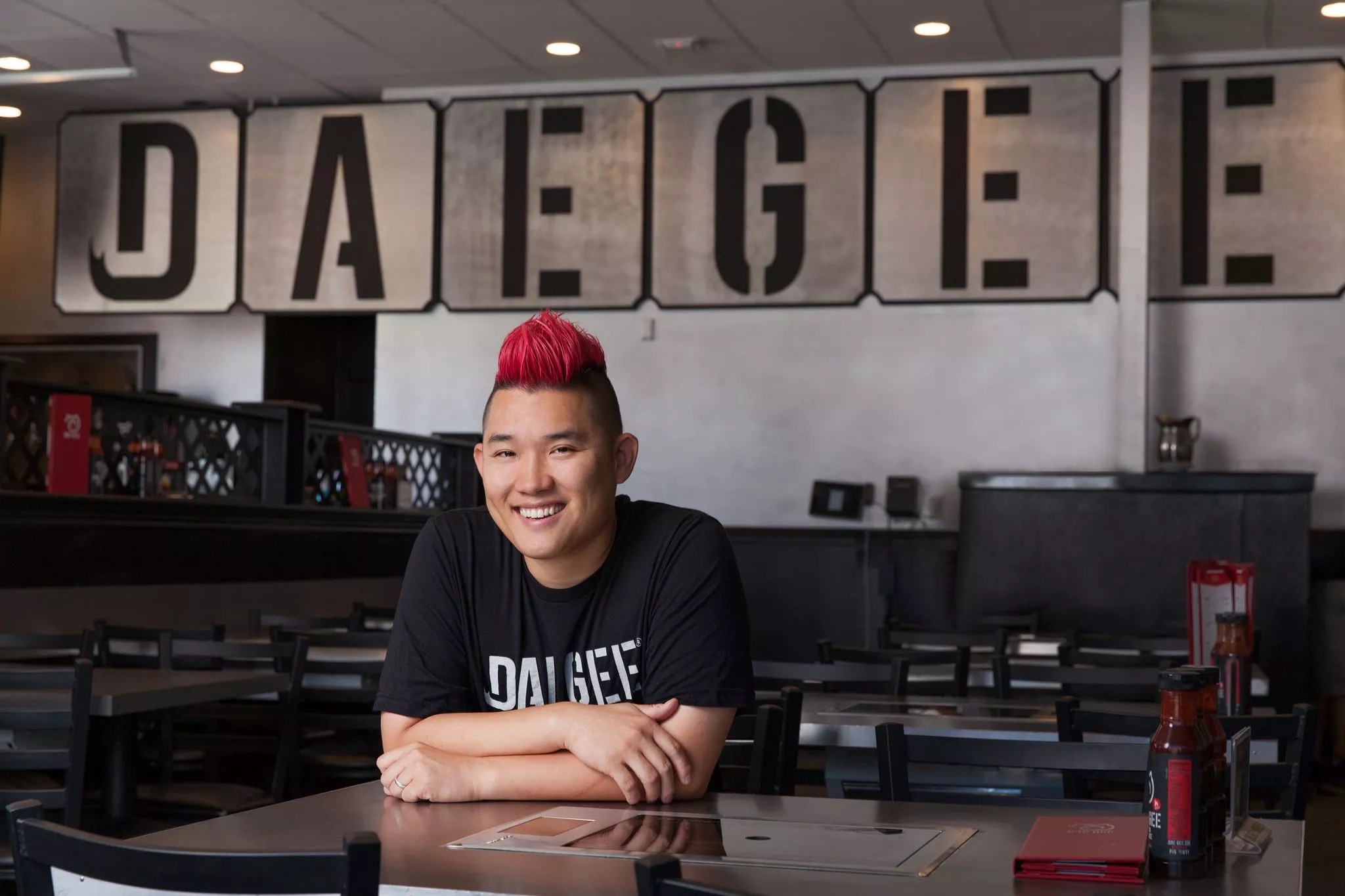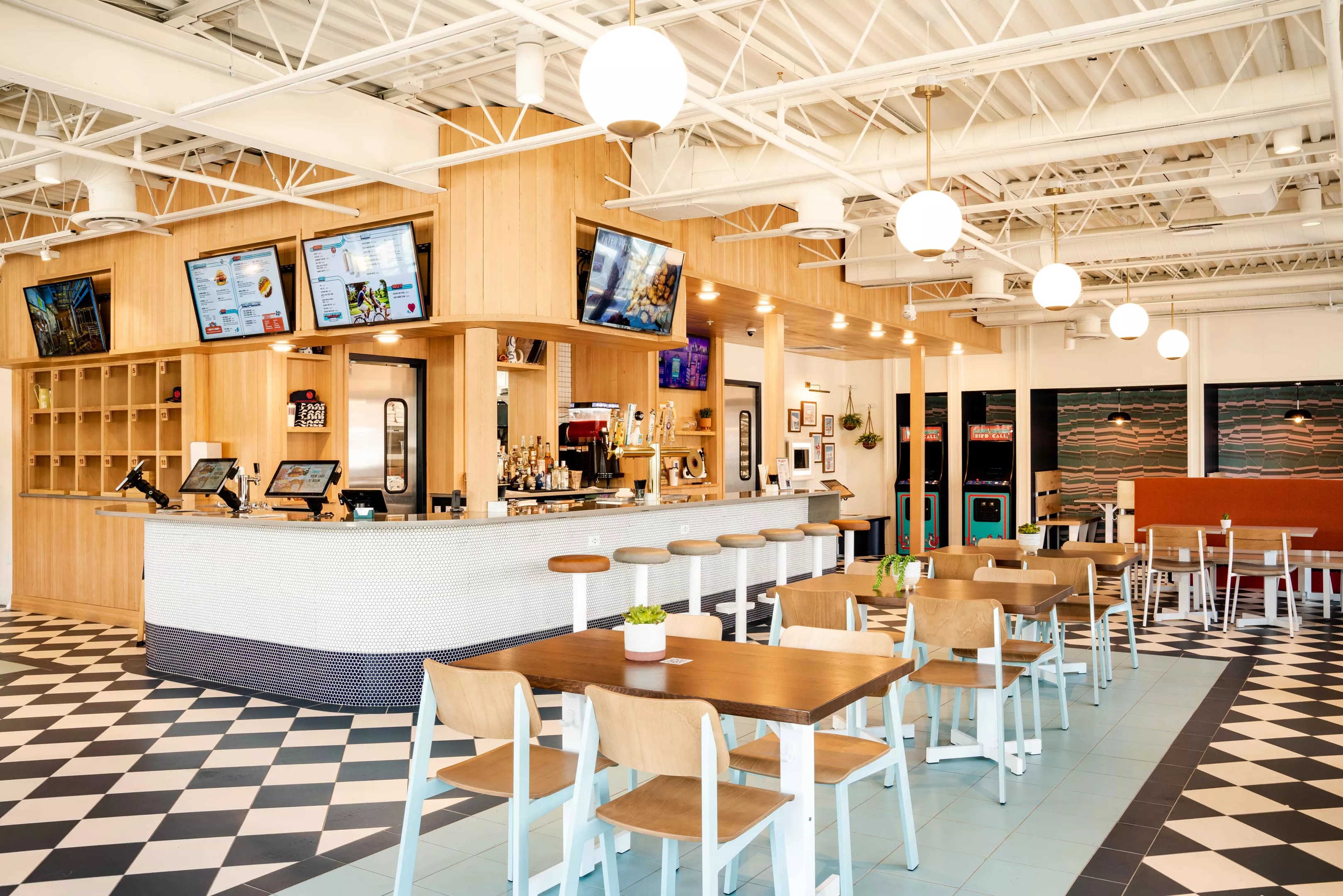
Dae Gee

Audio By Carbonatix
“Chain” is often treated like a bad word when applied to restaurants – especially in Denver, where we celebrate independent eateries with local roots and usually bemoan the arrival of brands already established in other states. But many chains that have grown into national culinary forces got their start as small spots right here on the Front Range.
One such brand ready to go big is Dae Gee Korean BBQ. In 2009, the chance to partner with the chef at an existing Westminster restaurant where his mother-in-law worked prompted Joseph Kim to jump from the dry-cleaning business to hospitality. “I realized there was a huge opportunity with Korean food and culture,” Kim explains. “That was right around the time of PSY and ‘Gangnam Style,’ and all that was kind of a craze on YouTube. I used that as an opportunity to catapult Korean food.”
Prior to jumping into the restaurant business, Kim “had never served in a restaurant, never bussed a table, never cooked in [his] life,” he admits, and everyone, including his mother and mother-in-law, advised him not to pursue the idea because of the stress and intensive labor required. But Kim jumped in anyway. “It was kind of crazy, in hindsight,” he admits, “but at the same time, I feel like that’s what enabled me to grow and be committed, because it was more about ‘Am I passionate about this?'”
His passion led him to create a company centered on balancing trendy branding elements with authentic Korean food. But that presented a challenge, too. The chef he originally worked with proved to be “very difficult,” Kim recalls. “He was very stuck in his ways and narrow-minded, and just wanted to do things a certain way…and so at the very early stages of business, I realized I needed to create a central kitchen, and I just wanted to have one chef, who was my mother-in-law, making all the recipes.” The idea was to establish a model that was “lean and mean,” Kim explains, relying on a person he knew he could trust.
Kim’s mother-in-law still makes much of the food for all the restaurants, including the kimchi and marinades for the meats. Along with the original Westminster location at 7570 Sheridan Boulevard, Dae Gee now has two outposts in Denver, one in Fort Collins and another in Aurora, with a sixth opening soon at 11680 East Montview Boulevard, also in Aurora.
When the pandemic hit, the lean-and-mean strategy proved essential. Kim was able to continue operating nearly all of his locations for to-go food even when staff couldn’t come to work during the restaurant shutdown. “Fort Collins, for example, I was the only one working there for seventy days straight until we reopened,” he says.

Dae Gee founder Joseph Kim is ready to make the jump out of Colorado.
Dae Gee
“I think during the pandemic, it really kind of opened my eyes,” Kim continues. “I’m putting so much money and so many resources into these corporate-owned stores, and at any moment, I can go belly-up.” It made him think more about franchising, something he’d considered early on. Kim was intrigued by the fact that there were no Korean franchises out there while other foods like burgers and pizza had so many.
“About four or five years ago, we started the process” of franchising, “but just got a little intimidated and kind of overwhelmed,” he recalls. But during the pandemic, with a newfound motivation to change his own business model coupled with the fact that so many people are looking to change careers and leave corporate jobs to start new ventures, Kim felt that the time was right to make franchising a reality. “I’m about trying to get to the masses, trying to reach the blue-collar individual who wants to make that jump to business ownership,” he says.
Franchising also means making the jump outside of Colorado. Kim’s plan is to initially focus on expansion into nearby states like Kansas, Nebraska, New Mexico, Utah and Wyoming. “Obviously, distribution is key, so we’re working with different co-packers right now, trying to fine-tune the recipes so that they’re able to help scale and grow with us, and we’re also looking at different restaurant groups willing to partner with us,” Kim says. “We’re going to start small, though, and make sure we have it dialed in correctly and efficiently.”
The goal is to open five to ten new restaurants in the region in 2022, and Kim would eventually like to expand nationally. “The popularity of Korean food is definitely there,” he says. “I call Korean barbecue self-hibachi without the show. It’s all about the experience, and millennials are huge on experience.”
So will Dae Gee become the next Chipotle? The burrito giant founded by Steve Ells, who grew up in Boulder, opened its original location in a former ice cream shop at 1644 East Evans Avenue in 1993 and began to expand rapidly after opening its first location outside of Colorado – in Kansas City, Missouri – in 1998. It even sold franchises early on, but eventually bought them back.
Though the company is no longer based in Colorado – it moved its headquarters to Newport Beach, California, in 2018 – it effectively launched the fast-casual trend that’s dominated restaurants for over a decade and became a point of homegrown pride for this state. The company is still going strong, with 2,622 locations nationwide, all of them company-owned. In the second quarter of 2021, Chipotle reported its highest profit margins since 2015. Denver is still a part of its growth, too: In August, Chipotle began testing a new plant-based chorizo in the Mile High.
Just two years after Chipotle debuted, Qdoba (then called Zuma Fresh Mexican Grill) got its start on Grant Street and Sixth Avenue. Though never surpassing Chipotle, its more than 700 locations across the country is still a pretty impressive number.
Also in 1995, Pete Turner opened the original location of Illegal Pete’s in Boulder. With full bars, green chile and an alternative-heavy soundtrack, for many Coloradans the ten locations now in Denver, Boulder and Fort Collins are a go-to over the build-your-own burrito brand’s bigger competitors. In 2015, Illegal Pete’s made its first move outside of the state, opening an outpost in Tucson, which resulted in short-lived protests over the restaurant’s name. But Turner persevered, opened another store in Arizona, and is still planning on more in metro Denver.
Homegrown chains aren’t all about burritos. There are sandwiches, too. Quizno’s was founded in Denver in 1981 by Jimmy Lambatos, who sold it ten years later to an ownership group with big ideas. Another Jimmy – Jimmy “Snarf” Seidel – opened the first Snarf’s Sandwiches in Boulder in 1995 and still heads up the company that has expanded to eighteen locations in Colorado (with three on the way) and outposts in Missouri and Texas. In 2013, Seidel also added Snarfburger – which made our 2021 list of the ten best burgers in town.
Though it’s not as big as the major fast-food burger players, the company behind Good Times Burgers & Frozen Custard dates back to 1968 and is still based in Lakewood. Good Times Inc.’s 35 locations are mainly in Colorado (with two in Wyoming), and it now also owns Bad Daddy’s Burger Bar. The company recently rolled out additional employee benefits that include holiday and performance bonuses.

The Umami Wagyu Burger is one of the new menu items being rolled out by Rock Bottom.
Rock Bottom
Some Colorado-born chains haven’t fared so well in recent years. Noodles & Company, founded in 1995 in Cherry Creek, shut down 55 underperforming stores in 2017 but has since reported growth. Old Chicago and Rock Bottom, both founded in Colorado, were purchased by SBP Hospitality in June 2020 after their parent company, CraftWorks, filed for bankruptcy in January of that year and laid off all 18,000 of its employees in March. Though Denver’s only Old Chicago closed in 2020, other locations remain in Aurora, Westminster, Thornton and Lakewood. Meanwhile, Rock Bottom still operates five locations in Colorado, including one on the 16th Street Mall, and just announced the rollout of an updated menu that includes what it describes as “chef-crafted” food and beer infused with “a wide variety of innovative, global flavors and premium ingredients.”
Other Colorado chains are celebrating new growth milestones. Snooze, the breakfast concept created by brothers Jon and Adam Schlegel in Denver in 2006, recently opened its fiftieth location, this one in Atlanta, with plans for adding twelve more in 2022. Although the Schlegels sold most of their company and have turned their attention to new ventures – Jon opened Attimo winery in January 2020 and Adam is a co-owner of Chook Charcoal Chicken – Snooze headquarters is still based in the Mile High City even though it operates in eight states. It also maintains its commitment to giving back, sustainability and community.
That focus on company values is shared by another local brand that’s poised for big moves this year. Birdcall is not only redefining what fast food can be, but it’s doing so with a mission of changing the world of hospitality and creating a better experience for both customers and employees.
The first Birdcall was founded in 2017 at 800 East 26th Avenue by Jean-Philippe Failyau’s Gastamo Group, the team behind Park Burger, Park & Co., Homegrown Tap & Dough and newcomers Perdida in Washington Park and Lady Nomada in Arvada. “Originally, the whole goal of the group was just, how do we make natural foods accessible, how do we focus on bringing a ton of value, and how do we create the kind of restaurants that bring community for all?” explains Peter Newlin, the CEO of Birdcall, which was originally conceived as a chicken-focused version of Park Burger.
“It was a classic evolution story,” Newlin adds, noting that as the idea began to take shape, it was driven by a desire to do something that would truly surprise guests by bringing the hospitality experience and quality of food at Park Burger to a fast-food concept. “It really just became this project of passion.”

The Cherry Hills Birdcall location is the first to feature a margarita bar.
Birdcall
Along with developing the menu and design of the new concept, the company also created a completely new POS system for Birdcall: Poncho, which was focused on efficiency and providing a self-serve-style ordering system. When Westword reviewed the original Birdcall in 2017, the employee-less experience seemed “lonely.” But the no-touch experience was well-suited to the pandemic. “We were able to add curbside technology in a matter of weeks,” Newlin notes.
Birdcall’s second spot was inside Whole Foods at Union Station, a partnership that was the impetus for transitioning every location to a 100 percent all-natural menu. The third location, at 1535 East Evans Avenue, was the first outfitted with a drive-thru; now every location is getting that feature.
Birdcall just opened its fifth restaurant – at 4996 East Hampden Avenue in Cherry Hills Village – and with it, the eatery debuted a margarita bar. “Everyone loves a margarita,” Newlin explains. “It’s just fun.”
Fun is central to the brand’s growth. Unlike many chains, each Birdcall location is tailored to its neighborhood, from the architecture to the local art featured inside, the commissioned street art outside and other unique features. The next location will open in Boulder in November; another will go into a Boulder Whole Foods. In 2022, the brand will expand to Arizona with spots in Scottsdale – where the patio will have a putt-putt course – and Phoenix, as well as three cities in Texas. The outlet in West Plano will have a fifteen-foot chicken outside.
Birdcall may be growing, but it’s not planning to go the franchise route. “Each one of these is so unique,” Newlin notes, “so that’s really, really hard to scale. I think we would rather open five to ten a year and have them be everything that we dream they can be versus 100 of them and they kind of lose a little bit in the process. So the goal right now is to continue to make sure they’re all company-owned stores.”
Still, like Kim, they’re willing to make shifts when necessary. “We’re definitely learning,” says Newlin. “We’re definitely trying to get a lot of feedback from our guests.”